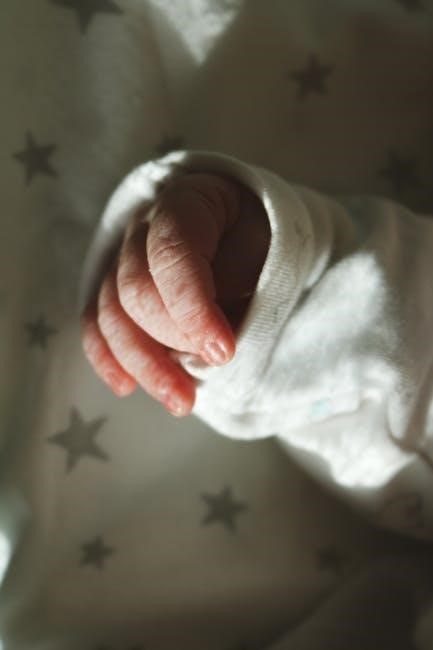A Star Reporter’s Break with Reality: An Analysis
This analysis delves into the perplexing transformation of Lara Logan, a once-esteemed 60 Minutes correspondent. The inquiry examines her departure from mainstream journalism. This will include a shift towards promoting conspiracy theories, and association with far-right media outlets. It seeks to understand the factors contributing to this radical shift.
Lara Logan’s career trajectory presents a fascinating and cautionary tale within the landscape of modern journalism. From her early days as a war correspondent, fearlessly reporting from conflict zones around the globe, to her eventual embrace of conspiracy theories and far-right ideologies, her professional journey has been marked by both remarkable achievements and profound controversies. Logan’s initial rise to prominence was fueled by her telegenic presence, her unwavering dedication to uncovering stories from the front lines, and her ability to connect with audiences on a deeply personal level.
However, a series of events, most notably the fallout from a flawed report on the Benghazi attack, served as a turning point in her career. Following this controversy, Logan’s views appeared to shift dramatically, leading her down a path of increasingly extreme beliefs and affiliations. This introduction aims to provide a framework for understanding the complex factors that contributed to Logan’s transformation. It also considers the broader implications of her story for the media industry and the public’s trust in journalism.
Lara Logan’s Rise to Prominence
Lara Logan’s ascent in the world of broadcast journalism was nothing short of meteoric. Her career began with reporting from the front lines of global conflicts, quickly establishing her as a fearless and dedicated correspondent. She covered significant events like the United States embassy bombings and the Kosovo War, showcasing her bravery and commitment to delivering news from dangerous environments.
Her work for GMTV Breakfast Television and CBS News Radio further solidified her reputation, providing a platform to reach wider audiences. Logan’s unique blend of charisma, intelligence, and tenacity allowed her to connect with viewers on a personal level, fostering a sense of trust and admiration. As she gained experience, she transitioned to CBS News, where she became a prominent figure on “60 Minutes,” one of the most respected news programs in television history. This role catapulted her to the highest echelons of journalism, earning her numerous awards and accolades. She became known as the “War Zone It Girl,” demonstrating her impact.
The Benghazi Report Controversy
The Benghazi report controversy marked a turning point in Lara Logan’s career, casting a shadow over her previously unblemished reputation. In 2013, she presented a “60 Minutes” segment that investigated the 2012 attack on the U.S. diplomatic compound in Benghazi, Libya. The report, however, was soon found to contain significant factual errors and inconsistencies, raising serious questions about the integrity of the reporting process.
A key source for the report, Dylan Davies, provided accounts that were later discredited, leading to a retraction of the story by CBS News. An internal review criticized Logan’s reporting methods, citing a failure to adequately verify information and a reliance on a source with questionable credibility. The controversy sparked intense media scrutiny and public debate, with critics accusing Logan and “60 Minutes” of biased reporting and a lack of journalistic rigor. Logan took a leave of absence following the incident, and this event is considered a significant factor in her eventual departure from CBS News. The Benghazi report became a symbol of journalistic missteps.

Shift Towards Conspiracy Theories
Following the Benghazi report controversy, Lara Logan’s career trajectory took an unexpected and controversial turn, marked by a noticeable shift towards embracing and promoting conspiracy theories. Once a respected mainstream journalist, she began to increasingly align herself with fringe narratives and unsubstantiated claims, often disseminated through far-right media platforms.
This transition involved Logan amplifying theories that lacked factual basis, ranging from questioning the integrity of elections to promoting narratives related to global conspiracies. Her pronouncements often contradicted established facts and expert consensus, raising concerns about the spread of misinformation. This departure from traditional journalistic standards raised questions about the factors influencing her change in perspective.
Some observers suggest that the Benghazi fallout contributed to a loss of trust in mainstream media institutions, leading her to seek alternative sources of information. Others point to the influence of personal beliefs and affiliations with individuals promoting conspiracy narratives. This shift alienated many of her former colleagues and eroded her credibility within the journalistic community.
Association with Far-Right Media

A defining aspect of Lara Logan’s career transformation has been her increasing association with far-right media outlets and personalities. After her departure from CBS News, Logan found a new platform within conservative media circles, aligning herself with organizations and individuals known for promoting right-wing ideologies and often controversial viewpoints.
She became a regular guest and contributor on programs associated with these outlets, using her platform to express her opinions on various political and social issues. This association provided her with an audience receptive to her increasingly conspiratorial narratives, further solidifying her shift away from mainstream journalistic practices.
Logan’s alignment with far-right media also involved collaborating with individuals who have been known to spread misinformation and promote extremist ideologies. This association drew criticism from media observers, who raised concerns about the normalization of conspiracy theories and the erosion of journalistic ethics. Her choices reflected a significant departure from the traditional standards expected of a seasoned journalist.
Key Conspiracy Theories Promoted by Logan
Lara Logan’s shift away from mainstream journalism has been marked by her promotion of various conspiracy theories, often aligning with narratives popular within far-right circles. These theories cover a range of topics, from global elites and social control to election fraud and the origins of societal issues. She has used her platform to amplify these claims, frequently without providing credible evidence to support them.
Among the conspiracy theories Logan has promoted are claims about Karl Marx and the Rothschild family’s alleged involvement in creating social media as a tool for social control. She also echoed theories about “fifth-generation warfare,” suggesting that people are manipulated into believing narratives regardless of the truth.
Her embrace of these theories has drawn criticism due to their potential to spread misinformation, incite distrust in institutions, and polarize public discourse. Many of these claims lack factual basis and have been debunked by experts. Logan’s willingness to promote them signals a significant departure from journalistic standards.
Impact on Journalistic Ethics
Lara Logan’s embrace of conspiracy theories and association with far-right media raise significant concerns about journalistic ethics. As a once-respected figure in broadcast journalism, her actions have implications for the credibility of the profession. The core principles of journalism—accuracy, objectivity, and impartiality—are challenged when a journalist promotes unsubstantiated claims and aligns with partisan narratives.
Logan’s shift raises questions about the responsibility of journalists to verify information and avoid spreading misinformation. Promoting conspiracy theories without evidence undermines public trust in media and can have harmful consequences. Her case highlights the potential for personal beliefs to influence professional conduct, leading to a departure from ethical standards.
The situation also raises concerns about the role of media organizations in addressing ethical breaches. When journalists promote misinformation, it is essential for media outlets to take appropriate action. To safeguard journalistic integrity is key, and it will also prevent the erosion of public trust.

Public Perception and Criticism
Lara Logan’s transformation from a respected journalist to a promoter of conspiracy theories has resulted in widespread public scrutiny and criticism. Once admired for her fearless reporting, she now faces accusations of spreading misinformation and aligning with extremist ideologies. Her statements have drawn condemnation from fellow journalists, media critics, and the public.
Many view Logan’s actions as a betrayal of journalistic ethics and a disservice to her former profession. Some critics argue that her embrace of conspiracy theories has damaged her credibility and tarnished her reputation. Others express concern about the impact of her statements on public discourse, particularly the spread of misinformation and the erosion of trust in mainstream media.
Public perception of Logan has shifted dramatically, with many expressing disappointment and disillusionment. Her case serves as a cautionary tale about the potential consequences of abandoning journalistic principles and embracing partisan narratives; The criticism highlights the importance of maintaining ethical standards and upholding public trust in media.
The Atlantic’s Profile: Elaina Plott Calabro’s Investigation
Elaina Plott Calabro’s profile in The Atlantic, titled “A Star Reporter’s Break with Reality,” offers an in-depth examination of Lara Logan’s career trajectory and her descent into conspiracy theories. Calabro meticulously traces Logan’s rise to prominence. The article also examines the factors that may have contributed to her shift towards promoting misinformation. The profile provides a nuanced perspective, drawing on interviews, archival footage, and Logan’s own statements.
Calabro’s investigation delves into Logan’s background, her experiences as a war correspondent, and the controversies that marked her career. The article explores the impact of the Benghazi report controversy on Logan’s professional standing and her subsequent embrace of far-right media outlets. Calabro analyzes Logan’s rhetoric and the specific conspiracy theories she promotes, shedding light on her motivations and the potential consequences of her actions.
The Atlantic’s profile offers a comprehensive account of Logan’s transformation, raising important questions about journalistic ethics, media bias, and the responsibility of journalists to uphold public trust. Calabro’s work provides valuable insights into the complexities of Logan’s story.
Lara Logan’s legacy presents a complex and cautionary tale within the realm of journalism. Once celebrated for her fearless reporting from conflict zones, her career took a dramatic turn towards the promotion of conspiracy theories and alignment with far-right media. This transformation raises critical questions about the factors that can lead a respected journalist down a path of misinformation and the lasting impact such a shift can have on their reputation and the public’s trust.

Logan’s future in the media landscape remains uncertain. Her association with fringe platforms and embrace of unsubstantiated claims have alienated her from mainstream news organizations. Whether she can find a path back to journalistic integrity or will continue to amplify conspiracy theories remains to be seen. Her story serves as a stark reminder of the importance of upholding ethical standards and maintaining objectivity in an era of increasing polarization and disinformation.
Ultimately, Logan’s case underscores the need for media literacy and critical thinking skills among audiences to discern credible information from harmful narratives.
